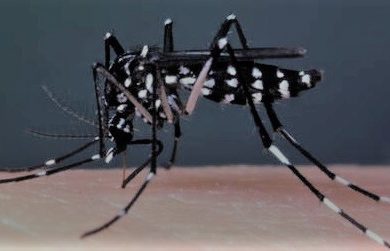Vaccines for Brazil
Essential information for anyone traveling to a foreign country, it is extremely important to inform yourself about which vaccines are required for travel. You should visit a medical practitioner at least once before your trip to confirm that you have had the necessary vaccinations. This section of our Brazil travel guide will outline the vaccinations needed for traveling to Brazil, the diseases which they help avoid and how you can take some simple precautions to lower the risk of falling ill.
The Aedes and Anopheles mosquitos are the species that spread the most infectious diseases in Brazil. Below you will find a description of each of the more common illnesses. Remember, these diseases and their carriers are mainly found on the outskirts of big towns, and in less sanitary areas. Dense living quarters in some areas make it easy for the mosquitoes to reproduce, especially near stagnant waters. This allows the disease to travel.
*Important Note: Due to the nature of the services we provide, you will not be taken to any areas where you would be at a high – risk of infection.
However, it is always possible to be bitten elsewhere by a carrier insect, which is why prevention is essential and the most effective way to avoid infection. For Zika and Dengue, getting a vaccine is not possible, make sure to take all precautions to avoid mosquito bites in high-risk zones. There are vaccines available for other illnesses so check where you are going and whether or not it is a high – risk zone. Always consult your GP when making decisions about medical care for travel.
Mosquito bite Prevention
In the most humid regions, it is best to wear long, and light-coloured clothing with closed shoes 2 hours before and after sunrise and sunset, this is when mosquito activity is at its peak. Moreover, you can use a mosquito repellent that contains at least 30% DEET, and ICARIDINE. For those who are allergic to skin products or those coming during a very humid period near a high risk area, you can soak your clothes in a solution of PERMETHRINE before departure and this will be an effective deterrent even after about 5 washes. Note that the Aedes mosquito bites during the day, so for maximum security, protect yourself at all times in a high risk – zone.

Vaccines and Infectious diseases in Brazil
Yellow fever (Vaccination)
One of the most common and important vaccines for Brazil is yellow fever. Like many infectious diseases in Brazil, yellow fever comes from the tropical rainforests where mosquitoes transmit it between monkeys. Humans usually contract the disease when an infected mosquito bites them. Yellow fever is often confused with a common flu or fever, but it is much more dangerous and in serious cases can cause organ failure. It is imperative that you speak to a medical professional to check you have had your vaccination before coming to Brazil, remember to outline the areas you will be visiting!
For yellow fever, you simply need to get your vaccination 10 days before entering an infected zone. This vaccination is mandatory to visit certain parts of the Amazon. A vaccination card is required for all travelers coming from a South American or African country infected by yellow fever upon entry. Inability to produce this card will lead to refusal of entry into the country as there is a high risk for the spread of infectious diseases in Brazil. The seasonal period for yellow fever in Brazil is December until May. In this period, during 2017 – 2018, WHO reported 1376 cases of yellow fever in Brazil. This was the biggest outbreak of yellow fever in Brazil in modern times, so also during the 2017 – 2018 yellow fever season, there was an effort to combat the number of cases with a national vaccine campaign. Experts have pointed out that the outbreak mostly affected places where doctors did not recommend the vaccine such as the rural areas around São Paulo and Rio de Janeiro. Experts have amended the advice given to local residents to reflect the effects of the outbreak.


Dengue fever (Prevention)
The Aedes mosquito, easily recognizable with its black and white legs, transmits dengue fever, specifically the female mosquito who after contracting and incubating the virus for more than 4 – 10 days will be infectious for the rest of her life. There is no specific treatment for this disease and doctors tend to treat the symptoms: fever, red blotches and fatigue for 2 to 3 weeks. Nonetheless, it is one of the most feared infectious diseases in Brazil and if left untreated, dengue can develop into a more serious condition with higher risks to the patient´s health, known as severe dengue. Similar to yellow fever, dengue is common in tropical countries. People who live in urban areas and suburbs have a higher chance of being bitten by a mosquito carrying dengue. In Brazil, many people in the poorer favelas surrounding the big cities do not have access to tap water; large basins used to collect rainwater are prime for breeding mosquitoes carrying the disease.
Dengue fever has been on the rise globally, and specifically in Brazil where there has been an increase in the first months of 2019. One of the causes of this jump in cases of dengue is climate change and more specifically global warming. Naturally, more days in the year with higher temperatures leaves more time for the mosquitoes carrying the disease to breed, in turn this leads to more humans contracting the disease. Moreover, increased rainfall provides the damp conditions that are necessary for the mosquitoes to thrive. Analysts have suggested that the collapse of the Venezuelan healthcare system has aided the spread of infectious diseases such as dengue throughout South America in general.
The first dengue vaccination was licensed in December 2015. It has since been shown to be safer only for people who have had a dengue infection before. For people who experience their first infection after the vaccination, there may be a higher risk of severe dengue.
For tourists coming to Brazil, dengue is relatively low – risk because they are unlikely to visit many areas where most infected mosquitoes are present.
Hepatitis A (Vaccination)
Most travelers coming from the USA or Europe are likely to have already received their vaccinations against Hepatitis A. However, it is always best to check with your G.P or a medical professional to make sure. If you discover that you have not been vaccinated for Hepatitis A in the past, then it is recommended that you get this vaccination before traveling to Brazil. Hepatitis A can be spread from person to person through sexual contact, from infected foods or liquids or from the sharing of injection and non – injection drugs.
Hepatitis A is a viral infection of the liver that causes inflamation. Some symptoms of the disease include: joint pain, diarrhea, vomiting, nausea, fever and fatigue, however most infections, especially in younger children do not show symptoms. Boiling food for 1 minute or longer can kill the virus and ensuring that swimming water is adequately chlorinated can reduce the chances of the disease spreading. The best and easiest way to avoid Hepatitis A is to get the vaccination, there is also a combination vaccine available against Hepatitis A and Hepatitis B.
Hepatitis B (Vaccination)
Most travelers coming from the USA or Europe are likely to have already been vaccinated against Hepatitis B, although it is recommended that you double check this with your G.P or a health professional. If you are told that you have not been vaccinated for Hepatitis B in the past then it is advisable that you get this vaccination before coming to Brazil. Hepatitis B is spread mostly through bodily fluids, sexual contact, sharing of needles and from mother to baby during pregnancy.
Hepatitis B is a viral infection that causes inflammation of the liver. It is highly contageous. One of the most common ways people catch Hepatitis B is through infected tattoo or piercing needles, although it is not spread through food or water. It is different from Hepatitis A in that it can remain in the human body and become a long – term disease. The best and easiest way to prevent Hepatitis B is to have the vaccination shot before infection, also there is a combination vaccination available against Hepatitis A and Hepatitis B.
Malaria (Antimalarials / Prevention)
Malaria is caused by parasites belonging to the Plasmodium Genus. The anopheles mosquito transmits the parasite to humans. Again, symptoms of malaria can be confused with symptoms of the flu, so it is important to know if you are travelling in an area with a risk of malaria. In Brazil, the areas where malaria is present are Acré, Amapá, Amazonias, Rondonia and Roraima. These are mostly the North – Western states that are covered by the Amazon rainforest. If you were to visit those specific areas, we advise to take antimalarial medication with you.
“Antimalarials” may act in the form of preventing or curing the disease. With most forms of oral antimalarial, you will take them before, during and after your trip. Always finish your course of antimalarial, even if you exit the high – risk zone before doing so! You should visit your GP or a medical professional to determine what the best form of medication would be for you. This can depend on whether you have any allergies, medical history and other medical characteristics that only a professional can assess. It is important to note that many of the treatments used to prevent malaria are also used to cure it, so it is vital to know exactly which medication you are on, in case you need to inform a doctor here in Brazil.
Zika virus (Prevention)
The Zika virus was originally found in the Ugandan monkeys of the Zika forest. In the trees of Zika, you will find over 70 species of mosquito that are able to carry deadly diseases and transmit them to humans. This infectious disease is said to have been brought to Brazil with either the 2014 World Cup or the 2014 World Sprint Championship canoe race, most likely with a traveler from French Polynesia. “Aedes aegypti formosus” is the mosquito that carries the Zika virus in Brazil. (It also carries dengue and yellow fever.)
The peculiar and dangerous thing about this infectious disease in Brazil and in the rest of the world is that once infected, most people do not develop symptoms. The reason the Zika virus was such an alarming and horrible worldwide concern is the effects it has when a pregnant mother is infected. If infected during this critical period, the foetus can develop microcephaly and other serious health issues. Furthermore, the pregnancy itself is at high risk of serious complications such as preterm or even stillbirth.
There is no treatment available for the Zika virus or the complications it can cause during pregnancy. The most effective prevention of Zika virus is to avoid being bitten by infected mosquitos. Also, Zika virus can be transmitted during sexual intercourse, be sure to engage in safe and informed decisions regarding your sexual health. The cases of Zika virus in Brazil have dropped to 20,000 during 2018 compared to 200, 000 when the epidemic was at its peak, so ongoing efforts to eliminate the virus are having a positive effect.
Diphtheria, Tetatnus and Polio DTB (Vaccination)
Most travelers coming from the USA or Europe will have already been vaccinated against DTB. It is always best to check with your G.P or a medical professional to make sure you have been vaccinated and received all boosters (if needed) before traveling. If you learn that you have not been vaccinated for DTB then it is best that you get this vaccination before traveling – vaccination against Diphteria, Tetanus and Polio is available in one combination vaccine.
Diphteria –
Diphteria is a bacterial infection that takes between 2 days and 5 days to develop symptoms. It is an extremely important vaccine as it can sometimes cause serious health complications such as inflammation of the heart muscle. Less acute symptoms include sore throat and fever.
Tetanus –
Tetanus is also bacterial, it is caused by the clostridium tetani bacteria. It is a very dangerous disease that passes through the infected persons blood stream. It can cause serious health complications. For the symptoms to appear it can be anything from 3 days to 3 weeks. Tetanus enters the body usually through an open wound via contact with infected soil, faeces, or domestic waste. Common ways of contracting tetanus are through animal bites or standing on rusted nails.
Poliomyelitis –
Poliomyelitis is commonly known as Polio. It is a viral infection and usually shows no symptoms. Most countries have eradicated Polio including the USA and Brazil but both continue to vaccinate against it.
Vaccines and Infectious Diseases in Brazil Summarized
In short, tourists are at a very low risk of contracting any of the diseases discussed on this page. This is especially true if you follow some basic guidelines. Also, it is worth noting that the places you would visit with Brazil Selection are low – risk areas for infected mosquito bites. Still, it is recommended that you visit your G.P to discuss vaccinations and prevention of infectious diseases before travelling anywhere.












